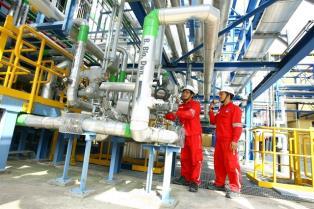A draft circular of the Ministry of Industry and Trade stipulates that from January 1, 2026, E10 will be the sole fuel available nationwide for motor vehicles using petrol engines.

HÀ NỘI — E10 biofuel is planned to be sold nationwide from January 1, 2026 for use in petrol-powered motor vehicles nationwide, according to a draft circular of the Ministry of Industry and Trade (MoIT).
The MoIT is seeking public feedback on a draft circular which outlines the roadmap for blending biofuels with traditional fuels in Việt Nam.
Accordingly, biofuels include E10, E15, and other types of petrol made from fuel ethanol and mineral petrol blended in different ratios.
The draft stipulates that from January 1, 2026, E10 will be the sole fuel available nationwide for motor vehicles using petrol engines.
From January 1, 2031, Việt Nam will switch to E15 or other biofuels regulated by the MoIT, based on the development of motor vehicles, socio-economic conditions, biofuel production and import capacity, and energy security requirements.
Since August 1, several key fuel distributors have piloted the sale of E10 in HCM City, Hà Nội and Hải Phòng.
Người Lao Động (Labourers) newspaper quoted Đào Duy Anh, deputy director of the MoIT’s Department of Innovation, Green Transformation and Industrial Promotion, as saying that from January 1, 2026, when E10 is rolled out nationwide, conventional mineral petrol, including RON 95-V, will no longer be available.
Regarding pricing, the MoIT will ask the Ministry of Finance to consider and submit a proposal to the Government and the National Assembly to reduce the environmental tax on biofuels, with their environmental benefits, including greenhouse gas emissions reduction, taken into account.
Since the pilot introduction of E5-RON92 and its nationwide use since 2014, there have been no consumer complaints about negative impacts on engine performance or durability. Reports also show no evidence that ethanol blending harms engines. — VNS





